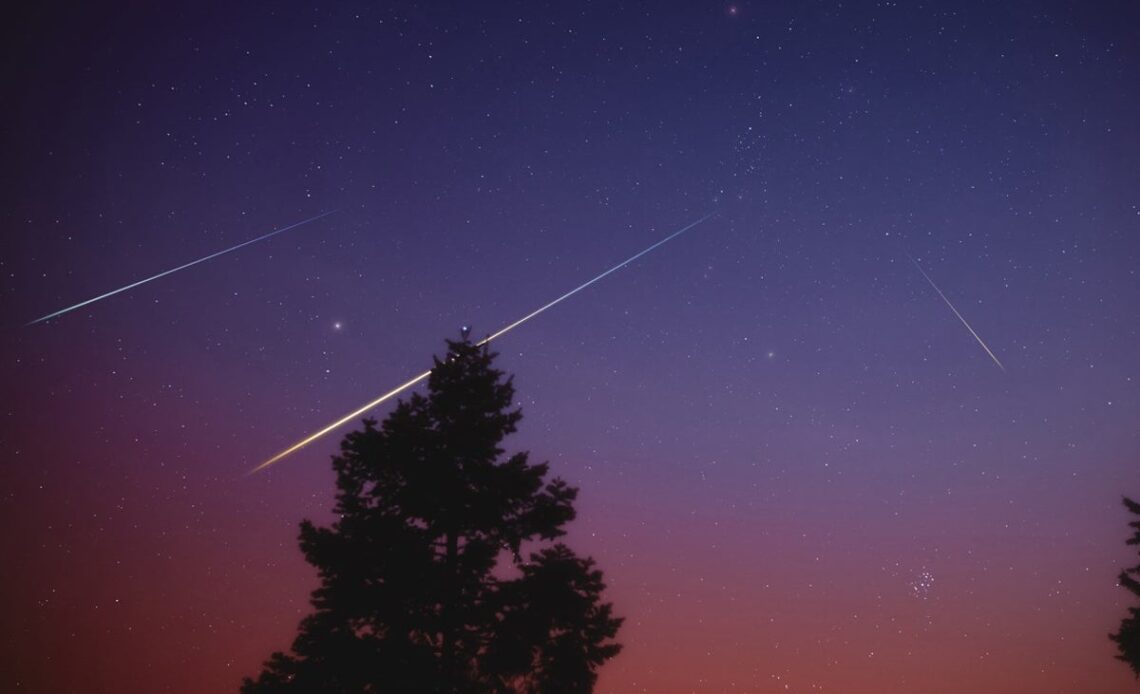While the UK is not often associated with incredible astronomical events, 2023 has already seen impressive meteor showers, more visible planets and even the potential to see the Northern Lights throughout the country.
While some missed out on the aurora borealis in February, the Quadrantid meteor shower lit up skies across the country in early January. Anyone who missed this annual celestial event will be happy to know that it is one of four annual meteor showers in the UK, with the next one just around the corner.
A meteor streaks past stars during the annual Quadrantid meteor shower
(Reuters)
As the weather improves and the nights get shorter and warmer, meteor showers can be seen lighting up the night sky across the UK, especially in more rural areas.
From seasoned astrophiles to those with no knowledge of the science, the Lyrid meteor shower is an event not to be missed for anyone wanting to see these colourful streaks in the night sky.
Read more on UK travel:
When is the meteor shower happening?
The next meteor shower of the year is the Lyrid meteor shower. Having started on 16 April, the shower ends on 30 April. The peak of the shower is expected to be on the night of 22/23 April, where you can expect to see between 10 to 18 meteors an hour in some areas.
Where can I watch the meteor shower?
The Lyrids are visible all over the world, with historical accounts of the showers going back as far back as 687BC from countries such as China and the US.
A photo of the Geminid shower from the Kubuqi Desert in Inner Mongolia, China
(Getty Images)
In reality, there is no ‘best’ location in the UK to watch the shower. However, Royal Museums Greenwich recommends finding “a dark site with unobstructed view of the sky”. Rural locations are more likely to offer a better view as they are less prone to light pollution. Heading for one of UK’s designated Dark Sky Reserves – Exmoor, Bannau Brycheiniog (formerly known as the Brecon Beacons), Moore’s Reserve in the South Downs, Snowdonia, North York Moors and Yorkshire Dales – could better your chances of a good sighting.
The best way to watch the shower
The best time to see the meteors is at any time during “the early morning of the peak day” (23 April).
The Royal Museums add that “the later in the morning you wait, the fewer meteors will be hidden below the horizon”. They also…
Click Here to Read the Full Original Article at The Independent Travel…
